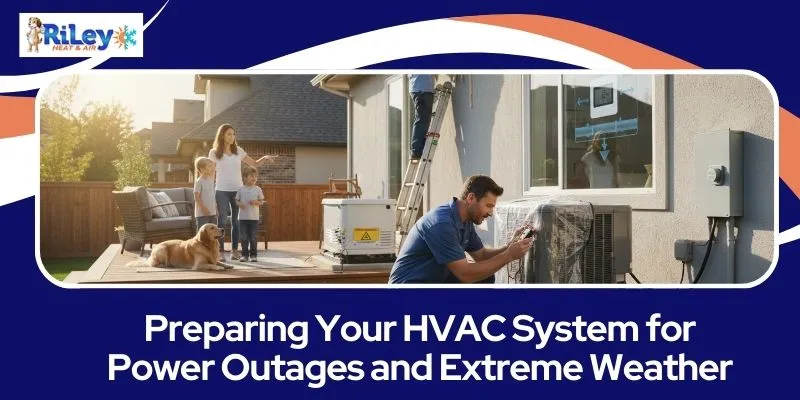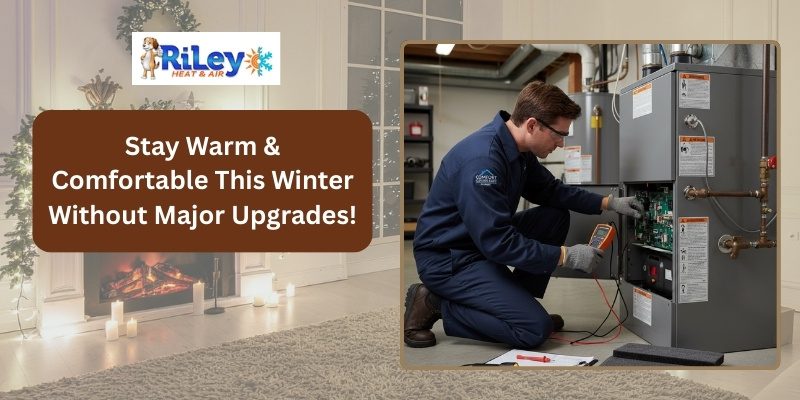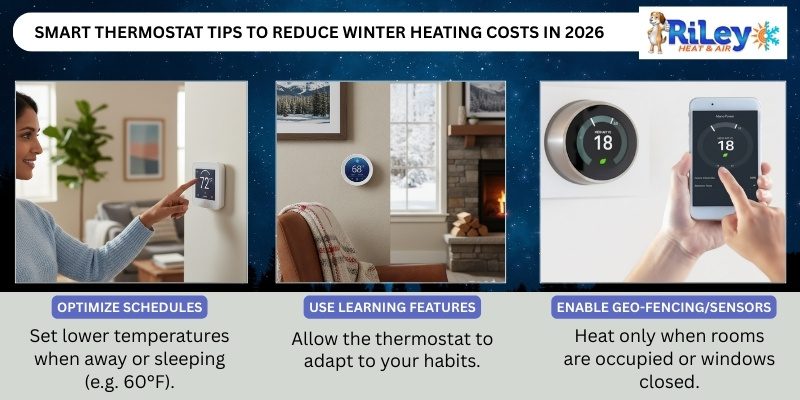
The Impact of Outdoor Unit Blockage (Leaves, Snow, Ice) on Your Heating Efficiency
The winter in Maryland is usually characterized by biting cold, snowfalls, and icy weather that challenge our home heating system. The HVAC unit on the outside of the house is the core of the heating efficiency that is ignored by many homeowners until something goes wrong. But once this important unit is blocked by snow, ice, or even fallen leaves, the performance takes a severe hit.
The article discusses the impacts of blockages around the outdoor units on the efficiency of heating and the most effective preventative maintenance techniques for outdoor HVAC units.
How Outdoor Blockages Affect Heating Efficiency
The heat exchange process that keeps your home warm is carried out by your outdoor HVAC unit, especially your heat pump or condenser. The system has difficulty absorbing or releasing heat when the airflow is limited by ice, snow, or debris.
This limitation compels the unit to take longer operational cycles, which use more energy and stress internal components. According to the U.S. Department of Energy, a small air barrier can decrease overall system efficiency by up to 25 percent, which is a direct blow to comfort and energy bills.
Common Causes of Outdoor HVAC Blockage
1. Snow and Ice Accumulation
When there is a lot of snow or it is an ice storm, the outside heat pump unit is either surrounded by ice or covered by snow. Although heat pumps are designed to withstand extreme weather conditions, thick ice coats will prevent the fans from rotating and the coils from exchanging heat effectively.
In case the defrost cycle fails to cope with the accumulation, the obstructed heat pump external unit will overheat, causing automatic shutdown or the circuit breaker. The long-term effect of such conditions is also reduced system life and high repair costs.
2. Fallen Leaves and Debris
During autumn, the leaves usually pile around the HVAC units. They become a heavy mat when combined with moisture, which limits the passage of air.
This causes issues of airflow within the HVAC, reduced heating capacity, and increased pressure to compressors and motors.
3. Ice Drips and Gutter Runoff
Melting snow off the gutters over the HVAC system can drip and refreeze on the unit, forming a solid block of ice.
This could eventually exhaust coils, fan blades, or compressor housing, which are extremely expensive in addition to being vital components of a working system.
Key Components at Risk
- Coils and Fins: The coil and fin make it possible to transfer heat both in and out of the house. Poor weather makes them incapable of working under snow or ice cover. A prolonged process of freezing and thawing may lead to structural damage, corrosion, or bending of fins, and the performance is forever lost.
- Fan Assembly: Ice on fan blades is also an uneven load, which may cause imbalance and vibration. This mechanical force can cause the fan motor to break, or even the blades to break.
- Compressor and Electrical Components: The compressor, which is commonly known as the heart of the HVAC, is very sensitive to temperature variation and obstructions. The ice around the same time may accumulate to result in overloading, inadequate use, or a short circuit.
Heating Efficiency Tips for Winter
There should be measures to maintain heating performance even on the coldest days of the year in Maryland. Professional heating efficiency tips that can be used to protect your outdoor unit during winter are below:
1. Regular Snow and Ice Removal
Sometimes, hit the snow around the outside unit with a broom or soft brush after each snowfall. Do this, but not with sharp tools, and avoid exposure to hot water, as the coils and fins may be damaged by thermal shock. When removing ice manually, it is always necessary to make sure that the power is off.
2. Maintain Proper Clearance
Make sure that there is at least two or three feet of clearance around your unit to enable free flow of air. Periodically clear leaves, branches, and debris to avoid future obstructions.
3. Elevate the Unit
To prevent getting caught up in the snow, the unit is installed on a raised platform or mounting pad, ensuring the preventive flow of water. The unit elevation will be particularly useful in the low zone or flood-prone regions.
4. Inspect Gutter Systems
Stop the dripping water created by ice formation by cleaning gutters and making sure that downspouts run away the dripping water at the unit.
5. Verify Drainage Around the Unit
Inadequate drainage may lead to the accumulation of melted snow around the foot of the system. Ensure that the ground is sloping to enable free movement of water.
6. Schedule Routine Professional Maintenance
Prior to the onset of winter, have an outdoor condenser cleaning as well as a full system check-up with a qualified technician. Riley Heat & Air heating maintenance technicians inspect broken insulation, defrosting controls, and ensure safe and efficient energy use during the season.
Dispelling Common Myths About Snow and Ice Removal
Myth 1: Pouring Hot Water Will Quickly Melt Ice
In practice, when you pour hot water on your outlet, you may crack it thermally and damage it. Always use mild mechanical debridement or expert defrosting.
Myth 2: Turning Off the System During Storms Prevents Damage
Long periods of shutdown will lead to freezing of internal components. It is better to keep the system running and make sure it is drained properly.
Myth 3: All Outdoor Units Are Fully Weatherproof
Although HVAC systems were developed to operate in extreme weather, it does not withstand extreme weather conditions. Continued checkups and HVAC winter protection are also essential to the reliability in the long run.
Conclusion
Your outdoor HVAC units may get blocked by leaves, snow, or ice, which can drastically impact the heating system, increasing your energy bills as well as expensive repairs. Regular maintenance, removal of snow on a regular basis, and professional inspections serve as the best guard against such problems.
It is not too late to secure your system against the season and have your HVAC unit serviced outdoors today. Contact Riley Heat & Air today for professional help.






